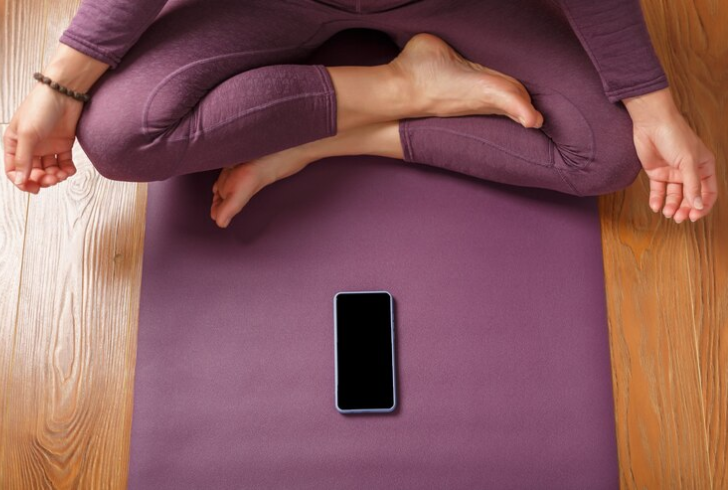Health tracking applications have rapidly become widely used as wellness trends and health technology develop. Whether they monitor steps, sleep cycles, heart rate, or eating habits, these apps promise to simplify healthy living. But as usage increases, so do questions. Are these apps helping—or are they adding new layers of stress?
According to Dr. Don Grant, a media psychologist and device management advisor at Newport Healthcare, health tracking tools offer both valuable benefits and potential downsides. Understanding both sides helps determine whether they support a healthier lifestyle.
The Bright Side

Freepik | wayhomestudioon | Health tracking apps help users build good habits and catch problems early.
Health tracking apps can spark positive change, especially when used consistently. Dr. Grant points out that apps help people detect patterns in sleep, activity, or diet, making it easier to identify which habits support or damage well-being.
Increased self-awareness leads many users to:
1. Set achievable health goals
2. Track measurable progress (like steps taken or hydration)
3. Stay accountable through daily reminders
4. Celebrate small victories consistently
Apps like these also promote routine. Whether someone wants to boost energy, improve mental clarity, or manage a specific condition, routine plays a central role. These tools act like digital coaches, helping users stay consistent over time.
Dr. Grant adds, “These apps support healthy habit building and can signal issues early—before they grow into bigger problems.” When someone notices their sleep declining or energy dropping, they can take action sooner rather than later.
Plus, these platforms create a clear communication bridge between patients and healthcare providers. Users can share data directly with doctors, leading to more informed, personalized care.
But At What Cost?
Despite the perks, health apps come with a few red flags. For many, especially those with perfectionist tendencies, these tools can cause unnecessary stress.
“Users often become fixated on numbers,” says Dr. Grant. “When goals aren’t met fast enough, anxiety and guilt kick in.” That pressure can make wellness feel more like work and less like a journey.
In some cases, missing one workout or a daily goal leads to self-doubt and quitting altogether. Over-comparing to others—especially through public tracking or social shares—also chips away at self-esteem.
Even small details can derail progress. Whether it's a missed hydration goal or poor sleep, users may spiral into an all-or-nothing mindset. Instead of adjusting, they drop the habit entirely.
This digital obsession turns what should be a helpful guide into a source of stress and disappointment. Users need to stay mindful and focus on long-term improvement, not daily perfection.
Finding Balance

Freepik | alexgrec | Take a break from tracking and focus on how your body feels instead of the numbers.
So, should people ditch health tracking apps? Not necessarily. These platforms offer real benefits—but only when used with balance and awareness.
Dr. Grant suggests treating health data as information, not judgment. “Apps can help people take control of their health,” he says, “but the goal is progress, not perfection.”
If using an app creates tension or obsessive behavior, it may be time to step back. Deleting the app temporarily or adjusting expectations can help restore a healthy mindset.
Also, consider whether the app complements or complicates daily life. If tracking feels exhausting, it’s probably doing more harm than good.
Wellness Works Best With Flexibility
Wellness isn’t about chasing perfect stats—it’s about improving quality of life. Health apps can support those efforts, but they aren’t magic solutions. In fact, they work best when paired with intuition, patience, and flexibility.
Instead of focusing on flawless numbers, focus on consistent habits. Use the data to guide smarter choices, not punish yourself for imperfection. When used with that mindset, these digital tools can absolutely be a smart part of a healthy lifestyle.




